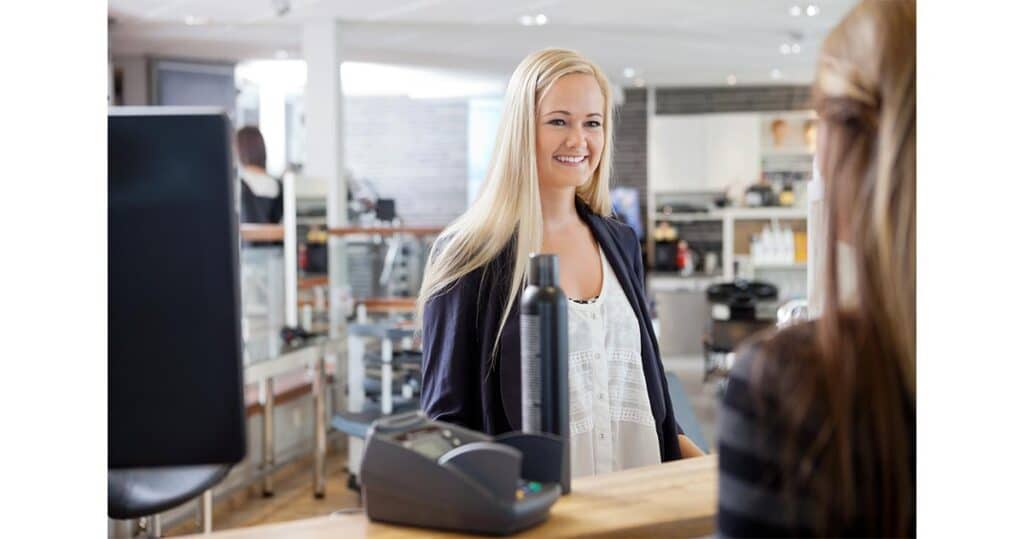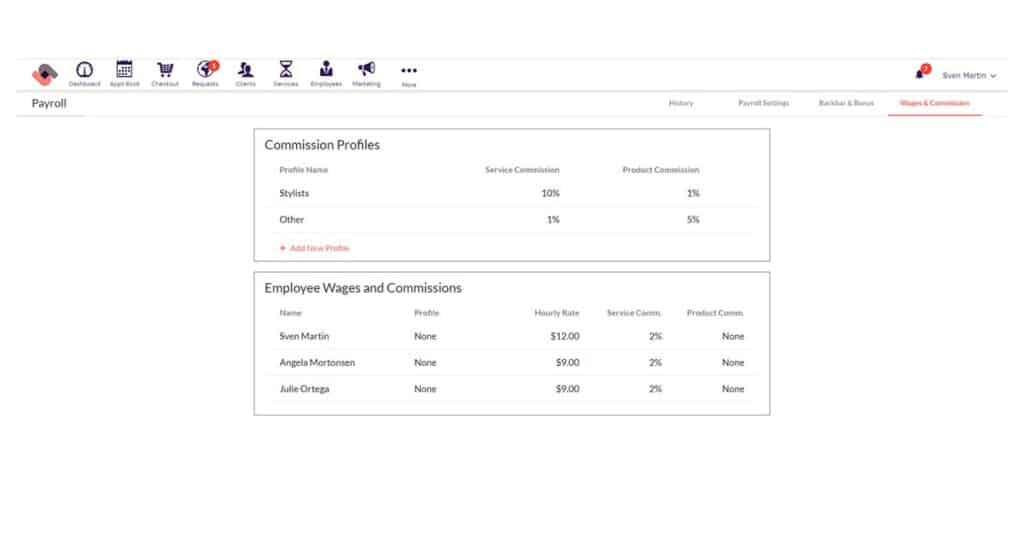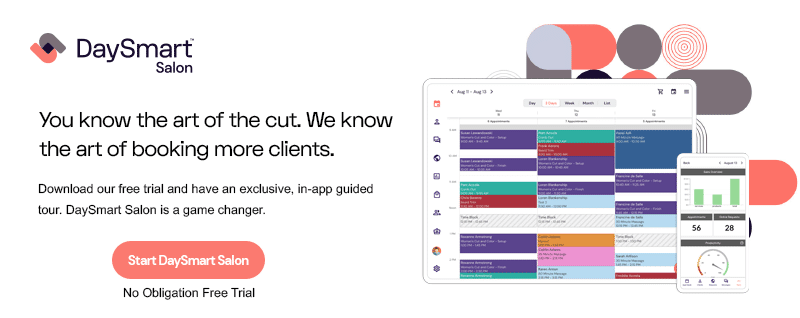The hair salon industry reached $39.5 billion in 2021. There are more than 882,300 businesses in this industry. Are you one of them?
If so, you’ve likely already sized up your options regarding booth rental vs. hiring your own employees to fill your chairs. But, there’s always room to reassess, especially in the post-Covid-19 era’s shifting economic landscape. What made the most sense for stylists 12 months ago may have changed significantly.
Are you currently weighing your options? Read on for a breakdown of both traditional salon arrangements and see which one works best for your situation.

What to Expect in a Booth Rental Salon Agreement
A hair salon booth rental agreement is a contract between the salon owner and an independent stylist. This contract is legally binding and is designed to protect everyone involved. Additionally, it is the document the IRS uses to determine whether the stylist in question is an independent contractor or an employee of the salon.
A salon booth rental agreement includes the rent/lease rate and how cancellation can take place. It outlines the length of the contract and what contractors can expect in exchange for chair rental – station, water, electricity, salon equipment, reception services, products, etc.
The booth rental agreement also outlines the obligation contractors have to the salon owners. They include information on taxation, protecting the salon property from damage as well as performing necessary repairs, insurance, emergency information, cleanliness standards, etc.
This contract should also outline cleanliness expectations, site duties, expected hours, non-compete clauses, fees and/or split costs, and any other rules or regulations. You should add that your renters must display their licenses and provide liability insurance.
Who Pays the Taxes?
Self-employed hairdressers pay all taxes related to their employment. As a salon owner, you are only responsible for taxes related to your income and business. They are also responsible for their own health and liability insurance.

What About Retail Products?
Your salon booth rental agreement can include a paragraph that prevents your tenants from selling merchandise that competes with your retail items. However, you can’t require your tenants to sell your retail merchandise to their clients.
You can encourage participation in merchandise sales through other means like contests or other internal promotions.
Who Sets the Pricing Strategy?
Independent business professionals are responsible for setting their own prices and collecting payments. They maintain their own books, too.
Clients will pay your booth renters directly. You will never provide a paycheck to your renter. Nor will your renter’s clients pay you.
Ideally, each self-employed stylist will use salon software to take payments from their phones.
Perks and Cons of Salon Booth Rental
We’ve mentioned this before but it bears repeating. Independent contractors are responsible for handling their own taxes, clients, and paperwork.
Renting out space in your salon means that your salon is full of your colleagues, not employees.
This means you don’t have to pay salaries. And the overhead costs of your salon are more manageable as you are collecting rent.
You also don’t need to provide health insurance, paid vacation or offer retirement plans.
Renting out chairs gives you a full salon. Your renters are business owners who want to bring in as many clients as they can. They are growing their own business and will work hard to find and keep clients.
Plus, you often get less turnover when you rent out booths. That’s because each stylist is building a clientele base that is their own.
When you don’t have employees, you don’t have to worry about making schedules or covering appointments if a stylist doesn’t show up.
The main drawback to renting booth spaces is that you lose some control. You can’t control what happens between stylists and clients. You can’t implement the techniques and procedures you prefer.
And because each stylist is working for his or herself, there can be a competitive atmosphere instead of a team-based one in your salon.

Perks and Cons of the Commission Salon Model
The other option besides renting our booths in your salon is to hire employees. Most salons that follow this model pay employees on commission, without base pay.
This means that pay is based on how much each stylist brings into the salon.
The best thing about this model is that you only pay for real work. If the stylists are standing around waiting for clients, you aren’t paying them. This method motivates employees to help build your client base.
Another benefit of hiring employees is that everyone is part of a team. And the goal is excellent service.
But, there are a few drawbacks to the commission model. For one thing, the operational costs of running a salon are constantly going up. Most salons average 10% of their pre-tax earnings to operational costs.
That means that it can be difficult for you to offer competitive pay that is based on commission.
Finding high-quality employees can be difficult. You can expect a high turnover rate. That’s because employees tend to want to run their own business. And when they leave, they may take their clients with them.

Bottom Line on Hiring Independent Booth Renters at Your Salon
Thanks for reading. We hope this article has given you a good idea of what you can expect from renting our booth spaces at your salon.
The most important thing is to make sure that your booth rental salon agreement identifies all the necessary points so that both parties are on the same page.
Try Daysmart Salon Software absolutely free for 14 days!

